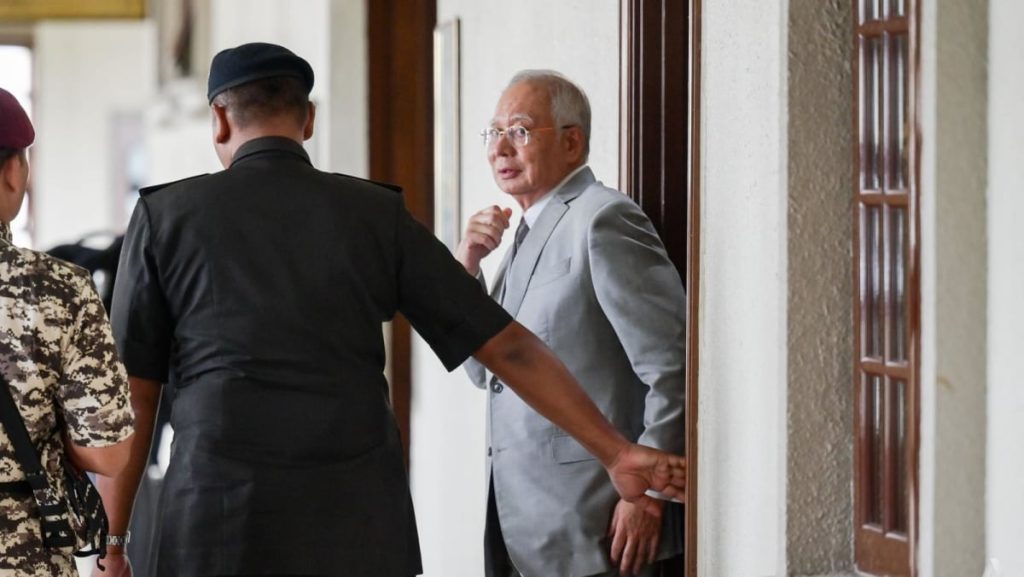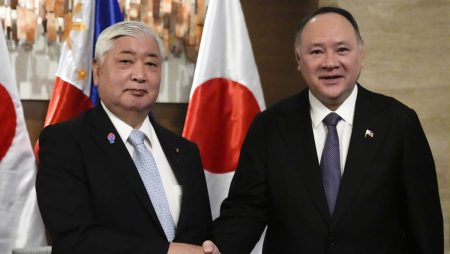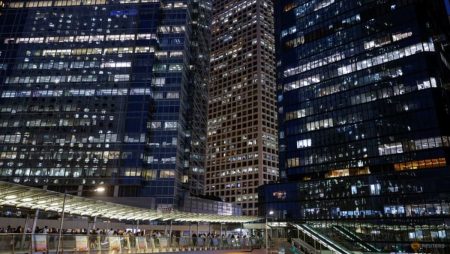On December 5, 2023, procedural developments occurred in the legal proceedings regarding former Malaysian Prime Minister Najib Razak’s request for house arrest. His legal team aimed to introduce new evidence related to an affidavit submitted by his son, Nizar Najib. This affidavit claimed that the Sultan of Pahang had informed Nizar of the existence of a royal addendum permitting Najib to serve the remainder of his six-year sentence under house arrest. Najib had previously been sentenced to a 12-year sentence for corruption, a term that was halved alongside a significant financial penalty by the former King just before his abdication on January 30, 2023.
The court hearing was postponed as government lawyers required additional time to review the newly presented affidavit. Nizar stated that he received the document from the Pahang palace, which purportedly confirms that his father is eligible for house imprisonment. Najib’s lead attorney, Shafee Abdullah, highlighted that the addendum aligns with prior knowledge regarding Najib’s sentence, emphasizing that it was signed on the same date as the original sentencing order. The revelation stirs anticipation about the potential implications of this fresh evidence in Najib’s appeal for house arrest.
Shafee underscored the significance of protecting the contents of the affidavit due to its sensitive nature, indicating a desire for confidentiality around this new evidence. He urged the appeals court to issue a protective order to maintain that discretion. The previous ruling from the High Court had dismissed an earlier request from Najib, deeming the evidence insufficient due to its classification as hearsay. Judge Amarjeet Singh had previously ruled that the affidavits from prominent political figures who claimed to have seen the royal order did not constitute admissible evidence, thus relieving the government from the obligation to respond.
Currently, Najib is serving his sentence at the Kajang prison in Selangor, following a series of legal challenges and controversies surrounding his conviction related to the misappropriation of funds involving 1Malaysia Development Berhad (1MDB). His efforts to secure house arrest have faced numerous legal hurdles, compounded by the lack of public disclosure about the alleged royal document and the silence from the former King himself.
Despite these challenges, Najib’s legal team is pursuing the appeals process in hopes of eventually achieving a favorable ruling, allowing him to serve the remainder of his sentence under less restrictive conditions. The ongoing developments in this case reflect not only the intricacies of Malaysian law but also the significant political ramifications tied to Najib’s legacy, given his substantial influence on Malaysia’s political landscape during his time in office.
Ultimately, the outcome of Najib’s appeal hinges on the court’s interpretation of the new affidavit and whether it can be deemed credible and legally pertinent. The case highlights ongoing tensions within Malaysia’s political realm and raises questions about the legal precedents set by the involvement of royal decrees in judicial matters. As the appeals court prepares to hear the case, the Malaysian public and observers await further clarity on this contentious issue, which encapsulates a pivotal moment in the nation’s approach to corruption, accountability, and governance.










